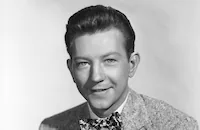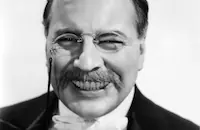Unmarried
Cast & Crew
Kurt Neumann
Helen Twelvetrees
Buck Jones
Donald O'connor
Robert Armstrong
Sidney Blackmer
Film Details
Technical Specs

Synopsis
When his manager, Pins Streaver, is killed attempting to rob a safe after losing all his money betting on a fight, third-rate fighter Slag Bailey leaves New York to investigate Streaver's property in upstate New York. Accompanied by his sweetheart, Pat Rogers, a hard-boiled nightclub hostess, Slag arrives to find a deserted house. Soon after, Streaver's twelve-year-old son Ted arrives home from boarding school, unaware of his father's death. Ted believes that Slag and Pat are married friends of his father, and so to comfort the boy, they decide to stay a day or two until he recovers from his grief. The day or two stretches into years, and under the positive influence of Ted and their neighbors, Pat and Slag effect a regeneration and become devoted foster parents. They work hard to give Ted a good education and send the boy to college, where he becomes a football star. Ted's popularity prompts shady fight promoter Cash Enright to suggest that he give up school for the fight game. But Slag knows Cash and how heartless the fight racket can be, and objects to the plan. This provokes a heated argument between father and son, which ends as Ted knocks Slag out. His act of violence forces Ted to realize that Slag and Pat, although not his natural parents, have sacrificed all for his education, and so he decides to heed their advice. Finally, Slag and Pat decide to formalize their relationship and marry.

Director
Kurt Neumann
Cast
Helen Twelvetrees

Buck Jones

Donald O'connor

Robert Armstrong

Sidney Blackmer

Larry Crabbe
Edward Pawley
William Haade
Phillip Warren
Dorothy Howe

Lucien Littlefield
Louise Carter
Kathryn Bates
Sarah Edwards
Gordon Hart
Stanley Blystone
George Melford
Emory Parnell
Pat O'malley
Robert Homans
Roland Drew
Pop Byron
Janet Waldo
Larry Mcgrath
Franklin Parker
Sam Ash
Jack Roper
Frank Hagney
Davison Clark
Spencer Charters

James Flavin
Clarence Wilson
Hamilton Macfadden
John Conte
Paula De Cardo
Norah Gale
Gwen Kenyon
Judy King
Crew
Hans Dreier
Harry Fischbeck
A. E. Freudeman
Stuart Gilmore
Lillie Hayward
Max Hutchinson
Grover Jones
William Lebaron
Brian Marlow
Russell Mathews
William Slavens Mcnutt
Boris Morros
Robert Odell
Richard Olson

Film Details
Technical Specs

Articles
Donald O'Connor, 1925-2003
Born Donald David Dixon O' Connor in Chicago on August 28, 1925, he was raised in an atmosphere of show business. His parents were circus trapeze artists and later vaudeville entertainers, and as soon as young Donald was old enough to walk, he was performing in a variety of dance and stunt routines all across the country. Discovered by a film scout at age 11, he made his film debut with two of his brothers in Melody for Two (1937), and was singled out for a contract by Paramount Pictures. He co-starred with Bing Crosby and Fred MacMurray in Sing, You Sinners (1938) and played juvenile roles in several films, including Huckleberry Finn in Tom Sawyer - Detective (1938) and the title character as a child in Beau Geste (1939).
As O'Connor grew into adolescence, he fared pretty well as a youthful hoofer, dancing up a storm in a string of low-budget, but engaging musicals for Universal Studios (often teamed with the equally vigorous Peggy Ryan) during World War II. Titles like What's Cookin', Get Hep to Love (both 1942), Chip Off the Old Block and Strictly in the Groove (both 1943) made for some fairly innocuous entertainment, but they went a long way in displaying O'Connor's athletic dancing and boyish charm. As an adult, O'Connor struck paydirt again when he starred opposite a talking mule (with a voice supplied by Chill Wills) in the enormously popular Francis (1949). The story about an Army private who discovers that only he can communicate with a talking army mule, proved to be a very profitable hit with kids, and Universal went on to star him in several sequels.
Yet if O'Connor had to stake his claim to cinematic greatness, it would unquestionably be his daringly acrobatic, brazenly funny turn as Cosmo Brown, Gene Kelly's sidekick in the brilliant Singin' in the Rain (1952). Although his self-choreographed routine of "Make "Em Laugh" (which includes a mind-bending series of backflips off the walls) is often singled out as the highlight, in truth, his whole performance is one of the highlights of the film. His deft comic delivery of one-liners, crazy facial expressions (just watch him lampoon the diction teacher in the glorious "Moses Supposes" bit) and exhilarating dance moves (the opening "Fit As a Fiddle" number with Kelly to name just one) throughout the film are just sheer film treats in any critic's book.
After the success of Singin' in the Rain, O'Connor proved that he had enough charisma to command his first starring vehicle, opposite Debbie Reynolds, in the cute musical I Love Melvin (1953). He also found good parts in Call Me Madam (1953), There's No Business Like Show Business (1954), and Anything Goes (1956). Unfortunately, his one attempt at a strong dramatic role, the lead in the weak biopic The Buster Keaton Story (1957) proved to be misstep, and he was panned by the critics.
By the '60s, the popularity of musicals had faded, and O'Connor spent the next several years supporting himself with many dinner theater and nightclub appearances; but just when it looked like we wouldn't see O'Connor's talent shine again on the small or big screen, he found himself in demand at the dawn of the '90s in a string of TV appearances: Murder She Wrote, Tales From the Crypt, Fraser, The Nanny; and movies: Robin Williams' toy-manufacturer father in Toys (1992), a fellow passenger in the Lemmon-Matthau comedy, Out to Sea (1997), that were as welcoming as they were heartening. Survivors include his wife, Gloria; four children, Alicia, Donna, Fred and Kevin; and four grandchildren.
by Michael T. Toole

Donald O'Connor, 1925-2003
Quotes
Trivia
Notes
This picture, which represented a new type of role for Western star Buck Jones, is a remake of Paramount's 1932 film, Lady and Gent. The picture was originally titled Second Chance, Me and My Gal and Night Spot Hostess, and features Jack Roper, a real-life opponent of boxer Joe Louis.














